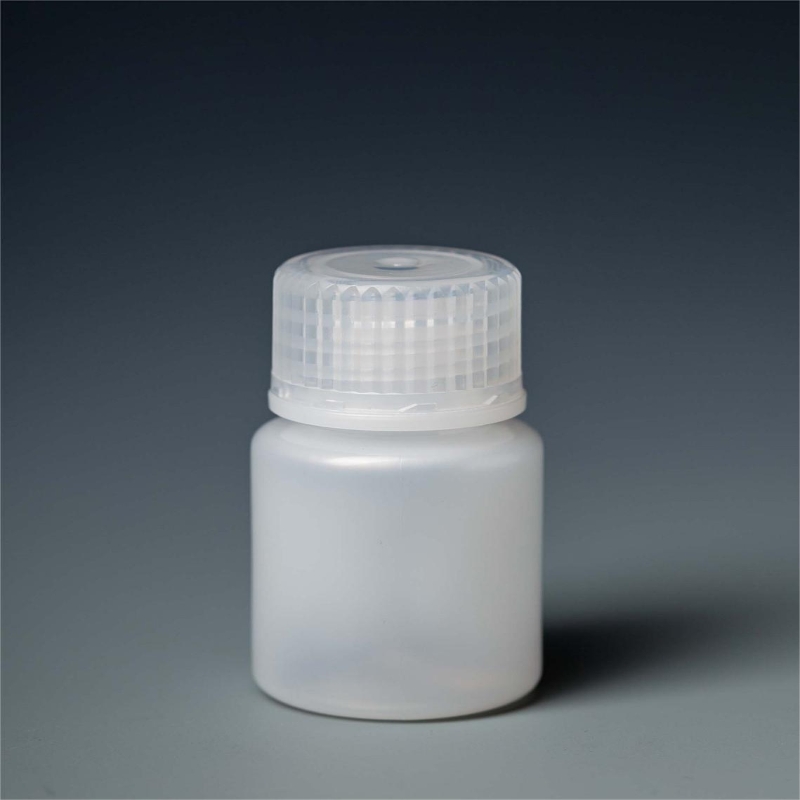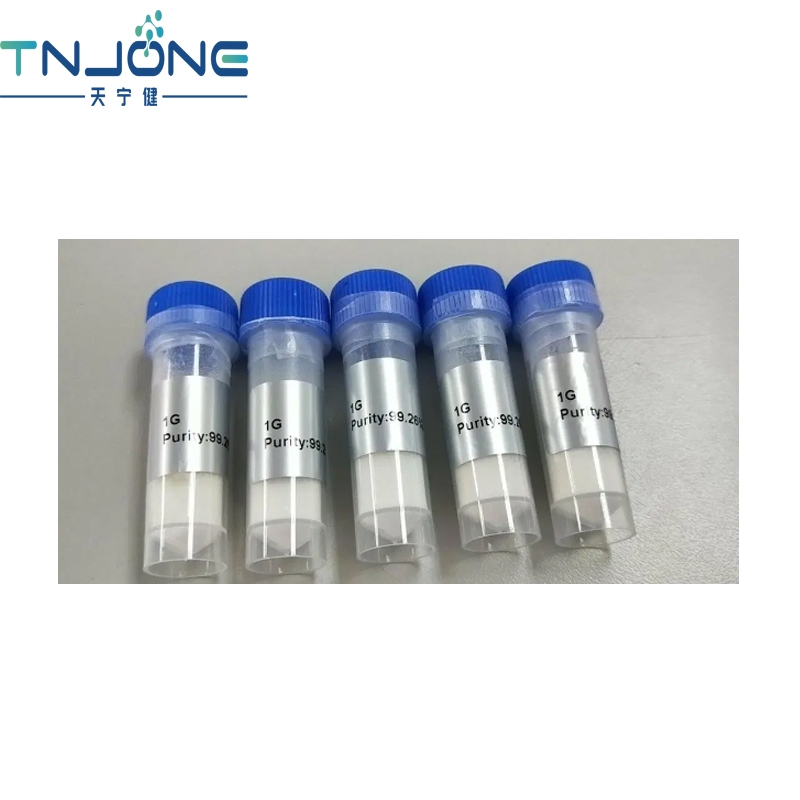-
Categories
-
Pharmaceutical Intermediates
-
Active Pharmaceutical Ingredients
-
Food Additives
- Industrial Coatings
- Agrochemicals
- Dyes and Pigments
- Surfactant
- Flavors and Fragrances
- Chemical Reagents
- Catalyst and Auxiliary
- Natural Products
- Inorganic Chemistry
-
Organic Chemistry
-
Biochemical Engineering
- Analytical Chemistry
-
Cosmetic Ingredient
- Water Treatment Chemical
-
Pharmaceutical Intermediates
Promotion
ECHEMI Mall
Wholesale
Weekly Price
Exhibition
News
-
Trade Service
October 20, 2022 / eMedClub News /--2 October 18, 022, Kyverna Therapeutics Announced that it has submitted an IND application for its autologous CAR-T cell therapy KYV-101 to the FDA for the treatment of lupus nephritis
。
Lupus nephritis (LN) is one of the most common serious complications of systemic lupus erythematosus (SLE), and studies have found that up to 10% of patients with LN and 40% of patients with diffuse LN (grade IV) eventually develop kidney failure and require dialysis or kidney transplantation to survive
.
For now
.
Treatment regimens for LN usually use steroids and other immunosuppressants, but seizures
still occur in 20% to 35% of patients with LN.
More importantly, steroids have significant side effects, often causing irreversible organ damage (e.
g.
, vertebral compression, osteonecrosis, cataracts, skin atrophy, etc.
) and increasing morbidity and mortality
.
As a result, there is a huge unmet clinical need
for LN patients.
KYV-101 is a CD19-targeting CAR-T cell therapy with properties that are particularly suitable for the treatment of B-cell-driven autoimmune diseases such as lupus nephritis, systemic sclerosis and inflammatory myopathy
.
In preclinical studies, the therapy has been shown to induce deep and complete B-cell depletion in blood circulation and tissues in disease models, producing significant efficacy
.
▲ CAR-T cell therapy for the immune system (Image source: Kyverna official website).
In addition, this CAR-T construct will improve the tolerance of traditional CD19 CAR-T, specifically, KYV-101 uses a fully humanized CD19 CAR combined with a reasonable co-stimulatory domain to minimize cytokine release and improve clinical tolerability, in a phase 1/2 oncology study involving 20 patients, the researchers observed a reduction in cytokine release in the experimental group and a 10-fold reduction in the incidence of severe neurotoxicity
。
It is worth mentioning that in January of this year, Kyverna also signed an exclusive cooperation agreement with Intellia Therapeutics, combining Kyverna's innovative chimeric antigen receptor targeting CD19 and Intellia's CRISPR/Cas9 in vitro allogeneic gene editing technology platform.
The co-development of its other product candidate, KYV-201, is also reported to be used to treat specific B-cell-driven autoimmune diseases
.
Baiji Biotech is recruiting plasmid engineers, with a monthly salary of about 1w, click to view >>>
CAR-T is gradually getting better for the treatment of autoimmune diseases
The submission of Kyverna Therapeutics to IND once again shows that CAR-T therapy is expandingfrom the field of malignant tumors to the field of autoimmune diseases.
As the second largest drug market after the tumor field, there are many applications
of CAR-T cell therapy in this field.
Cartesian Therapeutics: Descartes-08 Descartes-08 is an mRNA-engineered autologous CAR-T therapy that targets BCMA for the treatment of generalized myasthenia gravis (gMG).
。 Developed on Cartesian's RNA Armory℠ platform, Descartes-08 uses mRNA expression CAR to generate CAR-T therapies, which can express CAR molecules briefly rather than permanently, thereby reducing the risks
inherent in traditional CAR-T cell therapies.
▲ RNA Armory℠ platform technical principle (Image source: Cartesian official website).
Unlike traditional anti-BCMA drugs that mediate adaptive immune responses, Descartes-08 is designed to target the elimination of BCMA proteins in all plasma cells, avoiding the production
of harmful autoantibodies.
According to the results of a Phase 1b/2a clinical trial of Descartes-08 in patients with generalized myasthenia gravis (gMG), published in August 2021 by Cartesian Therapeutics, all 3 gMG patients in the first cohort showed significant improvement in disease and were well tolerated with the drug, There was no occurrence of cytokine storm (CRS) or other serious adverse effects
.
According to the Myasthenia gravis Comprehensive (MGC) scale, the average improvement of 3 patients was more than 50%
after 3 months of treatment.
This data has preliminarily demonstrated the safety and efficacy
of Descartes-08.
At present, the therapy has progressed to phase 2 clinical trials
.
Reindeer Biologics/Innovent Biologics: Iquilenca Injection Iquilenca injection, jointly developed by Reindeer Biologics and Innovent Biologics, is a CAR-T cell therapy for B cell maturation antigen (BCMA), transfecting autologous T cells with lentivirus as a gene vector, CAR contains fully human scFv, CD8a hinge and transmembrane, 4-1BB co-stimulation, and CD3ζ activation domains
.
Based on strict screening, through comprehensive in vivo and in vitro function evaluation, Iquilenca injection has strong and rapid efficacy, and has outstanding in vivo longevity
.
At present, the therapy has been approved IND in August this year for the treatment of AQP4-IgG-positive neuromyelitis optica spectrum disease (NMOSD).
Based on the results of an investigator-initiated clinical study (IIT), the reliable safety of Iquilencel injection in the treatment of refractory NMOSD subjects with poor control of conventional therapies was preliminarily demonstrated, all CRS were grade 1-2, and no ICANS (immune effector cell-associated neurological syndrome)
was observed.
In terms of effectiveness, 50% of participants improved vision, 67% improved walking ability, and 75% improved
rectal bladder function.
In addition, the academic community is still exploring more possibilities for CAR-T therapy to autoimmune diseases, and a research paper entitled "Anti-CD19 CAR T cell therapy for refractory systemic lupus erythematosus" was published in Nature Medicine in September this year.
It has attracted widespread attention
in the biomedical community.
In this paper, a research team at the University of Erlangen-Nuremberg in Germany reported 5 patients
with refractory systemic lupus erythematosus (SLE) who improved after CAR-T cell therapy.
At up to 17 months of follow-up, no patients experienced relapse and none achieved drug-free remission
.
From the results of these studies, we can see the great potential
of CAR-T cell therapy in the treatment of autogenous immune diseases.
But as the researchers said, CAR-T therapy in the treatment of autoimmune diseases still has certain risks, the current clinical data is still relatively small, and it is still necessary to follow up for a longer time in larger clinical trials to determine the safety and efficacy
of CAR-T cell therapy in this situation.
epilogue
At present, the indications targeted by CAR-T cell therapy are mainly concentrated in the field of tumors, and with the in-depth study of its various pathologies and their molecular mechanisms, CAR-T cell immunotherapy will break through its therapeutic limitations, and its medical application will go far beyond the scope oftumors.
The application of CAR-T cell therapy in the treatment of autoimmune diseases has begun to emerge, which also means that CAR-T therapy will open another door
to life science.
Although it is still in its early stages, it is believed that in the near future, this method will make a major breakthrough in both the therapeutic effect and the number of self-exempt diseases treated, providing patients with safer and novel treatment options
.
Resources:
1.
style="outline: 0px;max-width: 100%;color: rgb(34, 34, 34);font-family: system-ui, -apple-system, BlinkMacSystemFont, "Helvetica Neue", "PingFang SC", "Hiragino Sans GB", "Microsoft YaHei UI", "Microsoft YaHei", Arial, sans-serif;letter-spacing: 0.
544px;white-space: normal;background-color: rgb(255, 255, 255);text-align: center;box-sizing: border-box !important;overflow-wrap: break-word !important;margin-bottom: 0px;">







